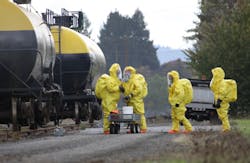American Chemistry Council backs new law on toxic chemicals
Following the introduction of the Safe Chemicals Act of 2013 by U.S. Senator Frank R. Lautenberg (D-NJ), the American Chemistry Council (ACC) agreed that an update of the Toxic Substances Control Act (TSCA) was necessary, but added that reforms should be done in such a way that ensures safety for consumers as well as favorable conditions for business development of the industry.
The Safe Chemicals Act of 2013, supported by a number of politicians, consumers groups, environmental groups and health charities, requires more protection for the public regarding harmful chemicals and insists that the Environmental Protection Agency (EPA) is given the authority to protect the public from toxic substances in everyday consumer products. Under current laws, last updated more than 40 years ago, the government has no mechanism to require safety tests for the majority of chemicals. The terms of the Safe Chemicals Act would allow screening tests for all chemicals used in everyday consumer products and banning those that are unsafe. At present, there are more than 20,000 chemicals in common use that were not used at all at the time the TSCA was passed.
Under the proposed act, the EPA would have the authority to evaluate the safety of the flame retardants in couches, the phthalate compounds responsible for the smell of new vinyl shower curtains, the bisphenol A that protects food in cans and other chemicals of concern in common household products. If tests find that any of the chemicals used in everyday products are harmful, then the EPA would have the right to ask for recalls or bans on production. Although the act is welcomed by much of the public, it is expected to face opposition from the industry.
RELATED: Stronger regulations on chemicals spur innovation
In response to the presented Safe Chemicals Act, ACC president and CEO Cal Dooley thanked Senator Lautenberg for his years of committed work on the issue and stated that the current law needed to be improved so that it could reflect contemporary scientific data regarding numerous chemicals. The new TSCA would have to place the protection of the environment and human health and safety at the heart of the regulation and management of chemicals, while at the same time it should allow the U.S. chemical industry to retain its place as a global industry leader, Dooley added.
The U.S. chemical industry is the foundation of 96 percent of all sectors of manufacturing and is a major component of the domestic economy. Updating TSCA in a way that would support safety, innovation and jobs is a must for all parties involved, he went on. A modernized and enhanced law should make sure that chemicals are safe for their intended use, as the EPA should prioritize chemicals for safe use determinations, with the biggest emphasis on chemicals of the highest concern. Moreover, the agency should work together with chemical companies to gather detailed information about the chemicals they produce and to collaborate on facilitating public access to chemical health and safety information, Dooley explained. Most importantly, a modern TSCA should be based on advanced science, the ACC stated.

